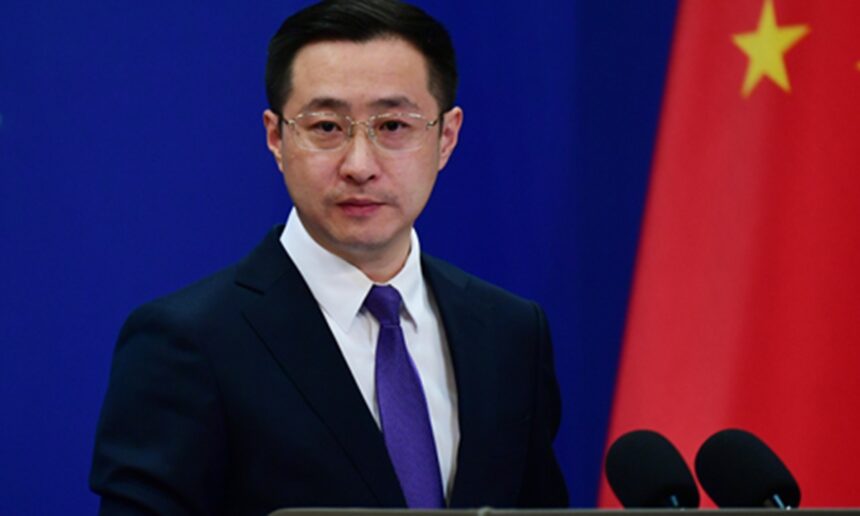By Zhao Yusha
In response to an inquiry regarding a bipartisan group of US lawmakers proposing three bills aimed at addressing “China’s role in the US fentanyl crisis,” Chinese Foreign Ministry Spokesperson Lin Jian said China certainly won’t accept it when some US politicians distort the facts and use disinformation to smear China’s counternarcotics efforts.
The US needs to look within for the root cause of the issue of drug abuse, and the key to resolving the issue lies in the US’s own hands, the spokesperson said, calling on some US politicians to face the US’s own issues squarely and take more practical measures to strengthen drug control and cut demand at home, rather than scapegoating others.
The proposed legislation would “hold China accountable” for “directly fueling the fentanyl crisis through its state subsidies of precursors,” said the House of Representatives’ select committee on China, on which all of the sponsors of the bills sit, per Reuters.
One bill, The CCP Fentanyl Sanctions Act, introduced by Democratic Representative Jake Auchincloss, would codify authorities for the US to cut off Chinese companies from the US banking system, including vessels, ports and online marketplaces that “knowingly or recklessly” facilitate shipment of illicit synthetic narcotics.
Two other bills would create a task force of US agencies to conduct joint operations to disrupt trafficking networks, and allow for the imposition of civil penalties on Chinese entities that “fail to properly manifest or follow formal entry channels when shipping precursors to the US”, the committee said.
Lin emphasized that China has the toughest resolve and policy against drugs and we have one of the best counternarcotics track records in the world. China has scheduled the largest number of substances and has the strictest drug control in the world.
Everyday, China’s counternarcotics authorities fight the illicit diversion of precursor chemicals in strict accordance with law and make sure that relevant companies do their business in accordance with the laws and regulations, Lin noted.
The reason why some US politicians keep smearing China is that the fentanyl crisis is becoming more rampant within the US, and it is difficult to see any substantial improvements in the short term, Wu Xinbo, director of the Center for American Studies at Fudan University, told the Global Times.
As a result, many US politicians are intensifying their efforts to shift the blame onto other countries. The essence of this problem lies in the ineffectiveness of the US domestic drug policy and the prevailing drug culture, Wu said.
Data released in April this year from the US Centers for Disease Control and Prevention found fatal drug overdoses in the US fell by roughly 3 percent in 2023, but the toll from the overdose crisis in 2023 remained devastatingly high, claiming 107,543 lives, NPR reported.
That compares with 111,029 overdose deaths in 2022. Drug deaths in 2023 remained above the 106,699 fatalities recorded by the CDC in 2021.
During an interview with the Global Times in August, Yu Haibin, deputy director general of the Narcotics Control Bureau, China’s Ministry of Public Security, said that the US has made various appeals to China for help in controlling the drugs.
Yu said that since China recognized fentanyl substances as a class, US law enforcement agencies have not reported any fentanyl-like substances coming from China, and the US has expressed its appreciation for this.
“On the basis of mutual respect, peaceful coexistence, and win-win cooperation, we are willing to actively engage in drug control cooperation with the US government. However, if the US continues to ignore China’s sincerity and efforts while simultaneously suppressing and pressuring China in various fields, and even infringing upon China’s bottom line, we will have no choice but to respond accordingly,” said Yu.
China’s cooperation with the US on the fentanyl issue is a gesture of goodwill. If the US does not appreciate this and instead retaliates against China, it will certainly affect China’s willingness to continue cooperating with the US and will create obstacles for future drug control collaboration, Li Haidong, a professor at China Foreign Affairs University, told the Global Times, noting that such blame game would further exacerbate US fentanyl problems.













